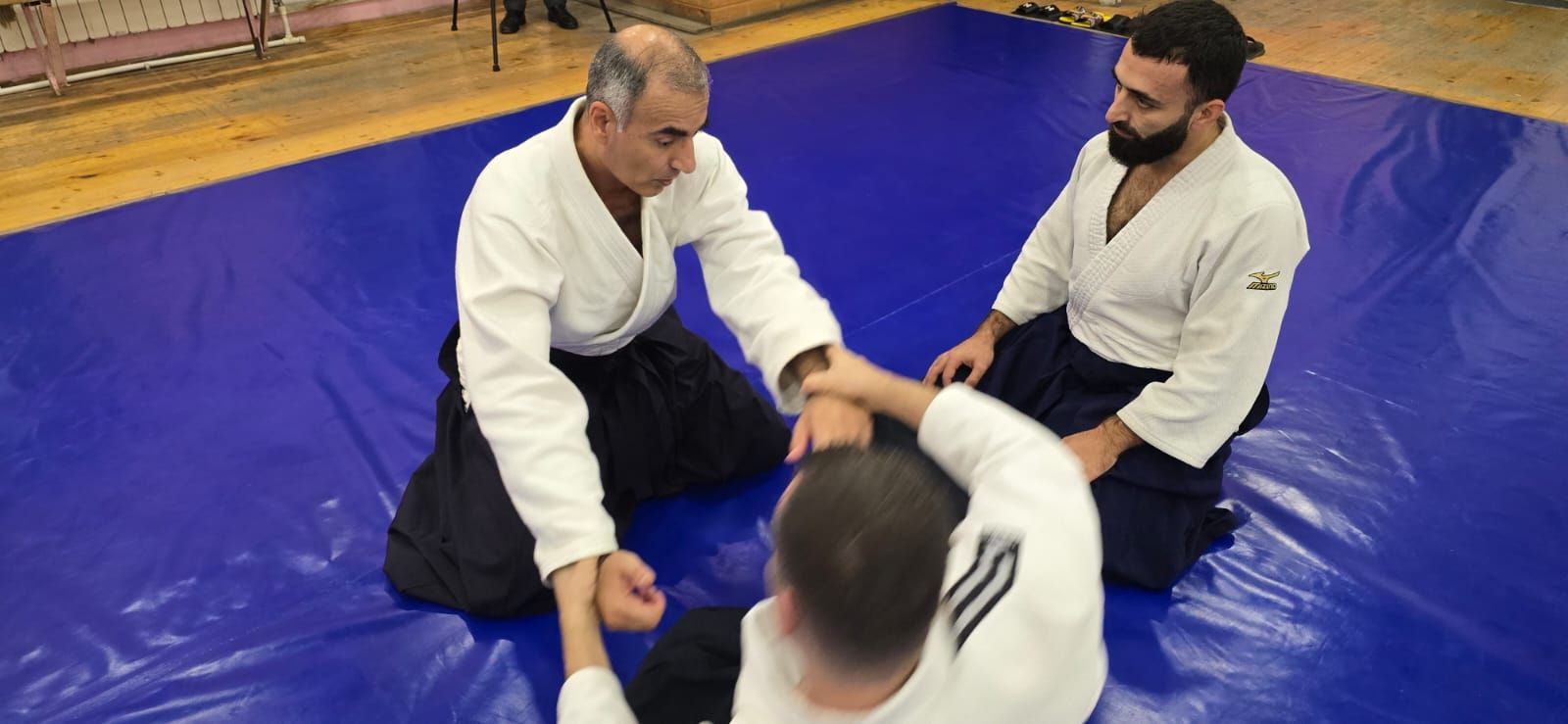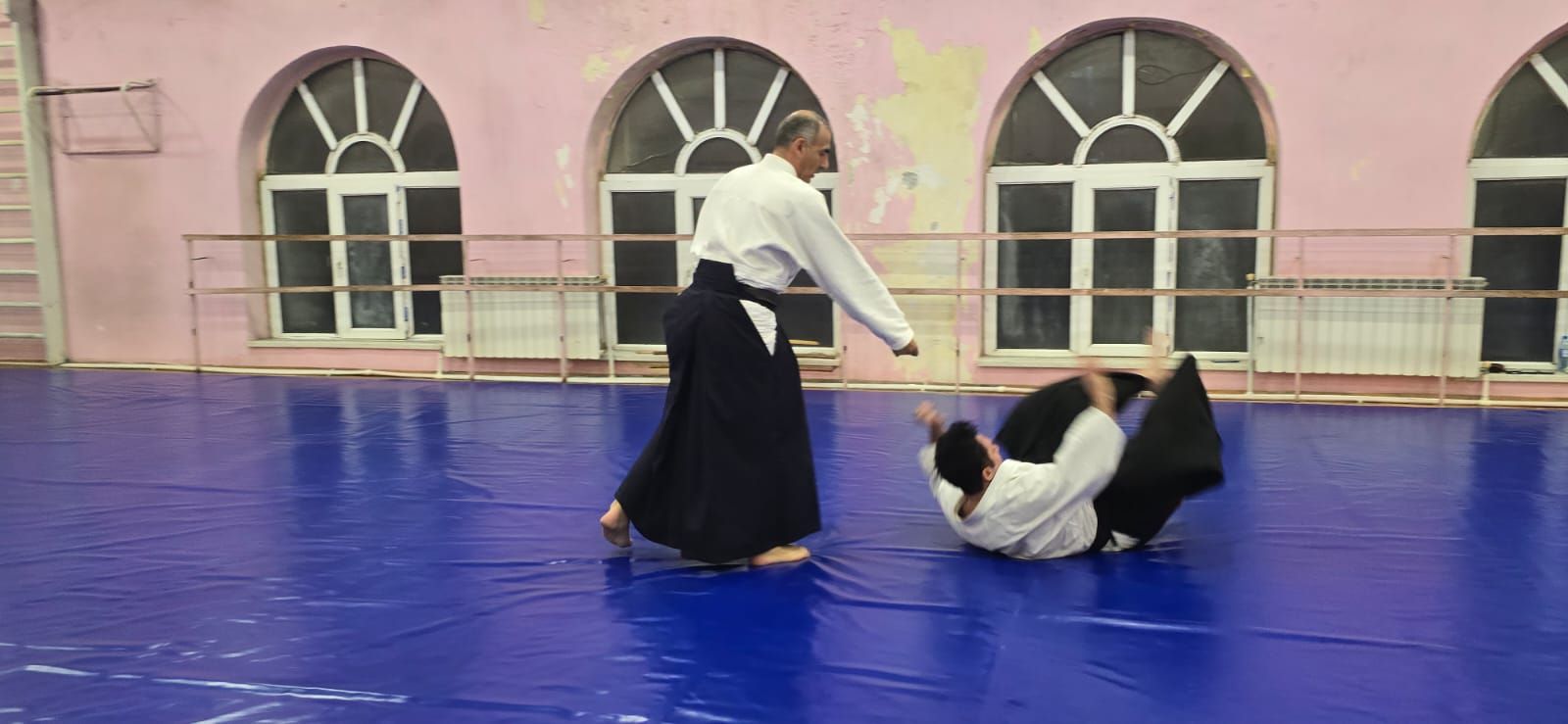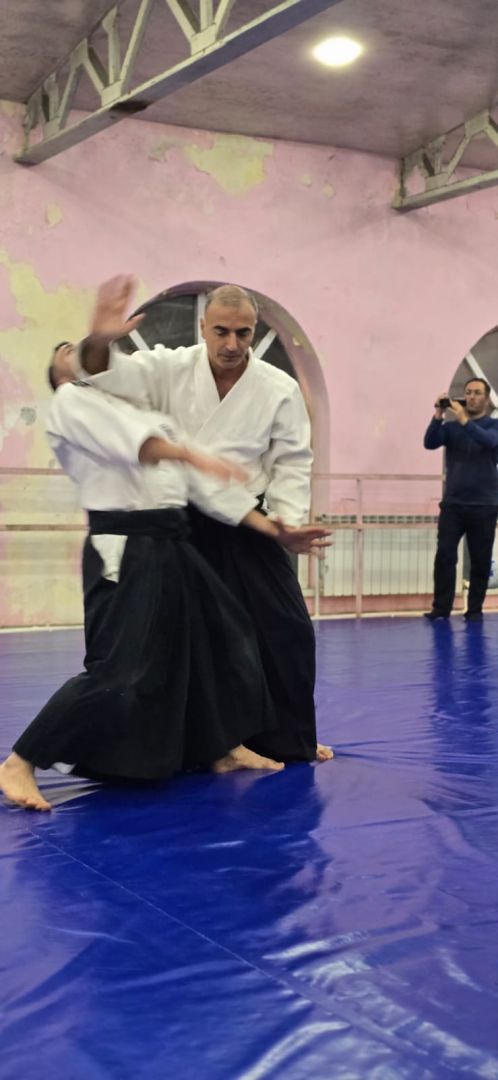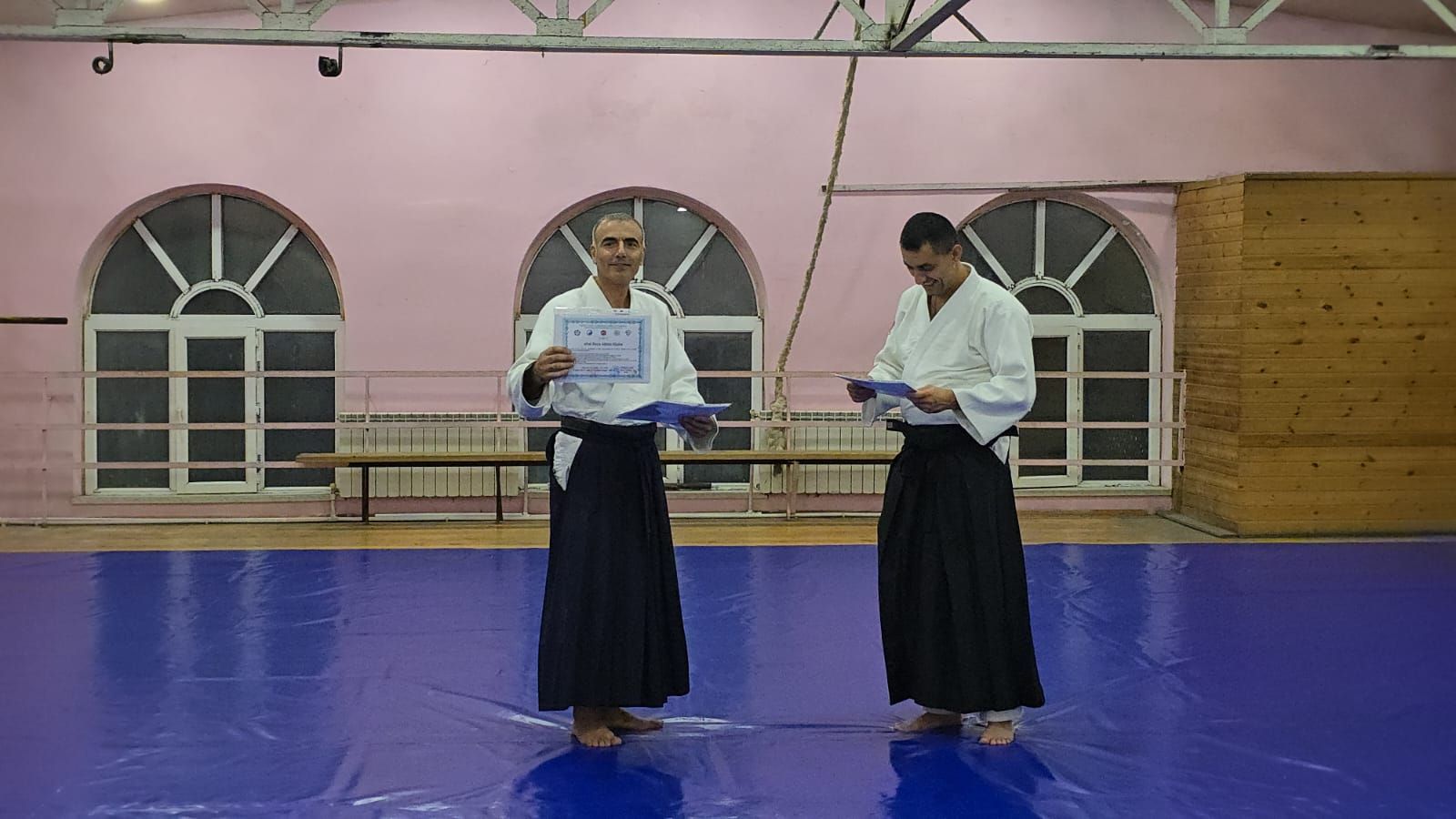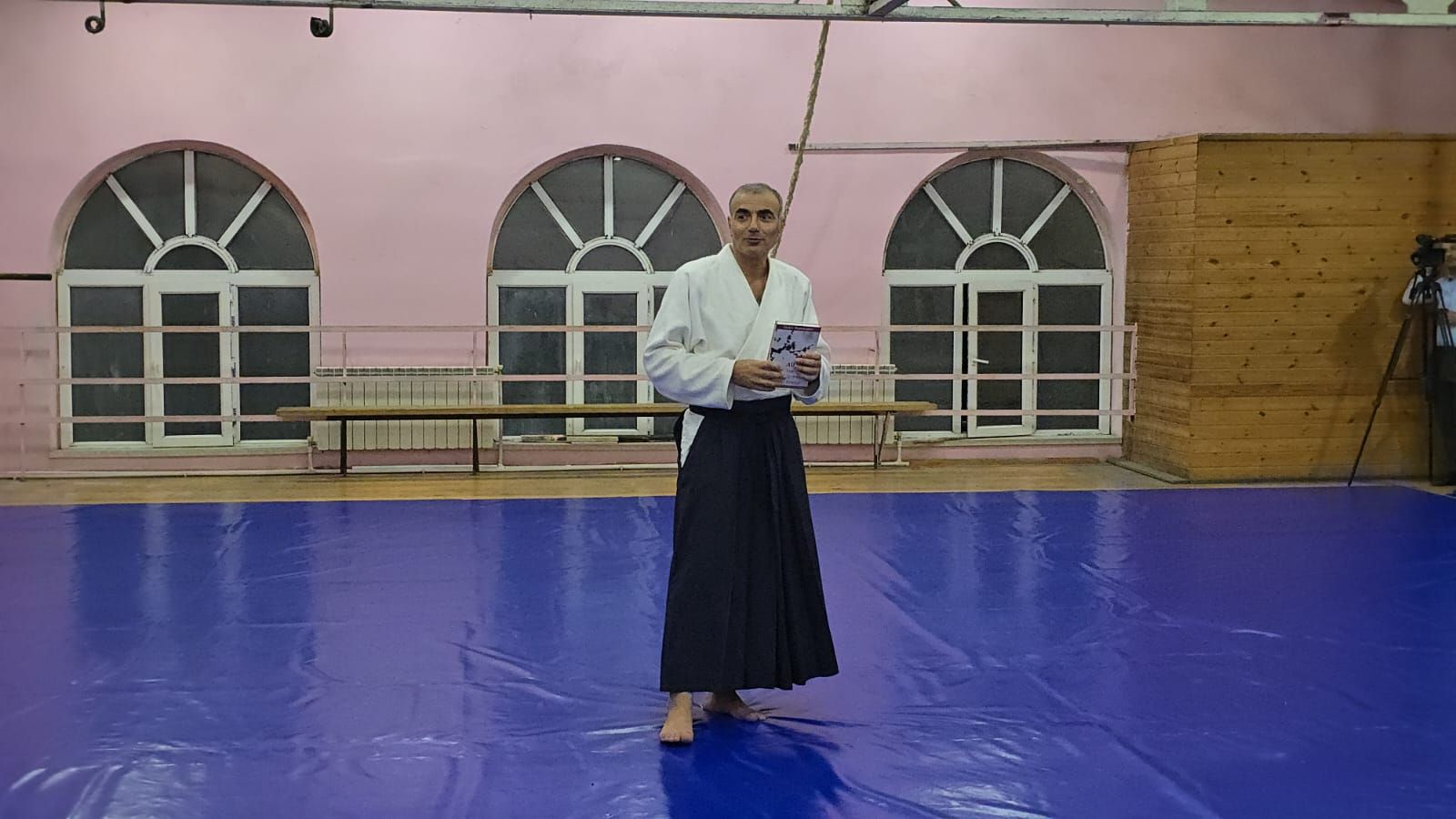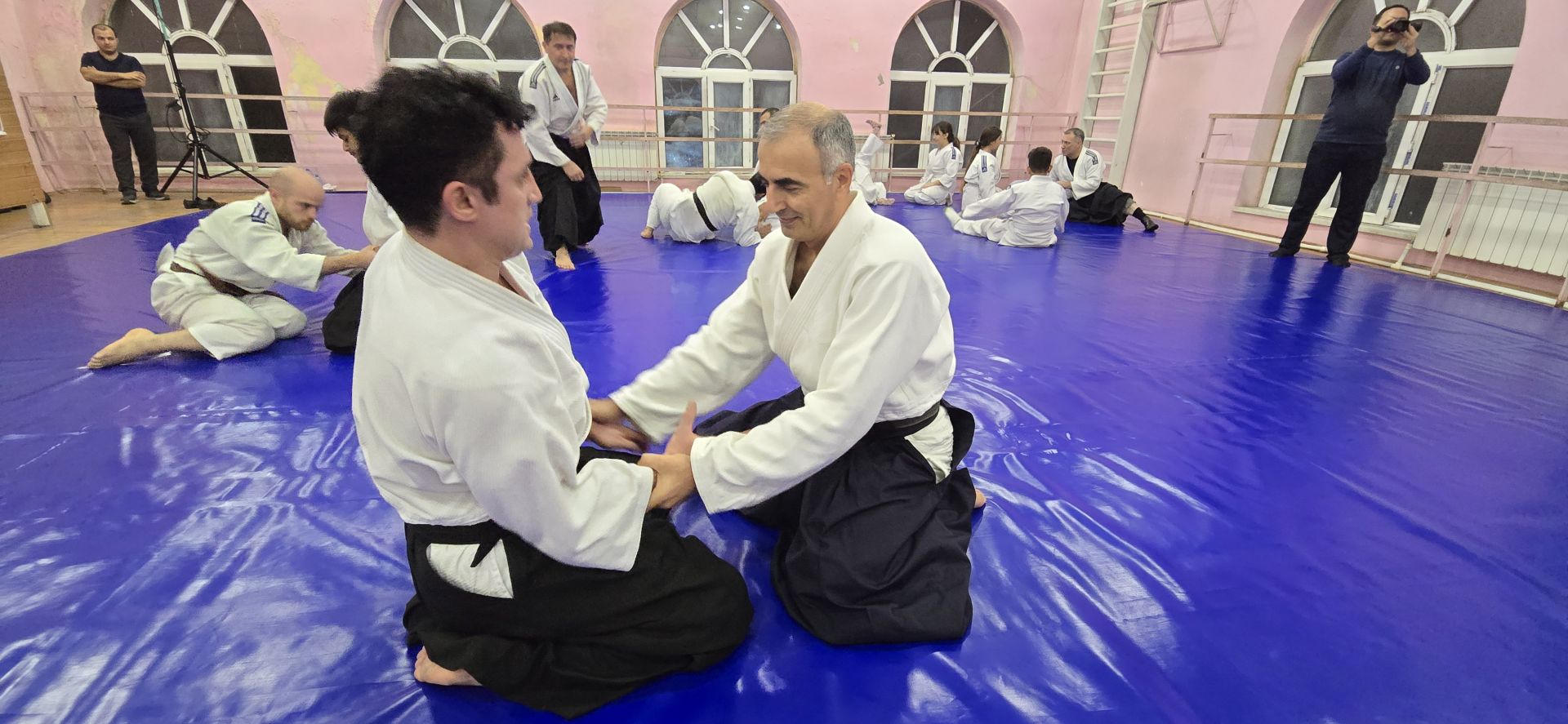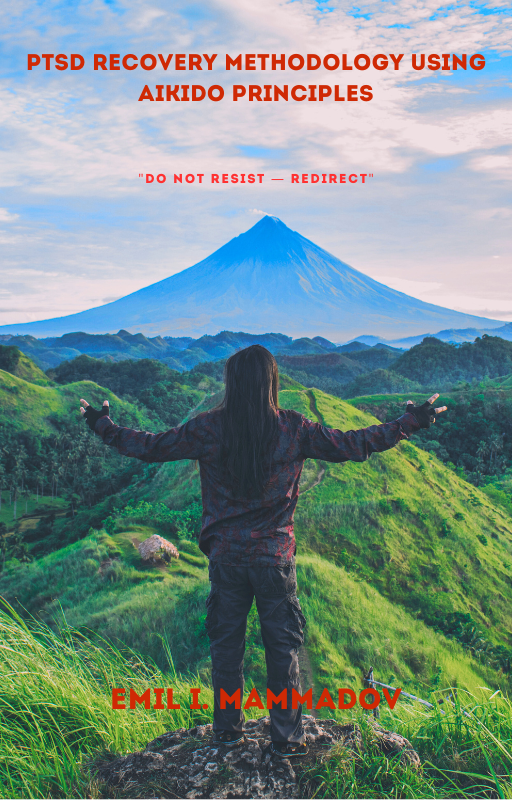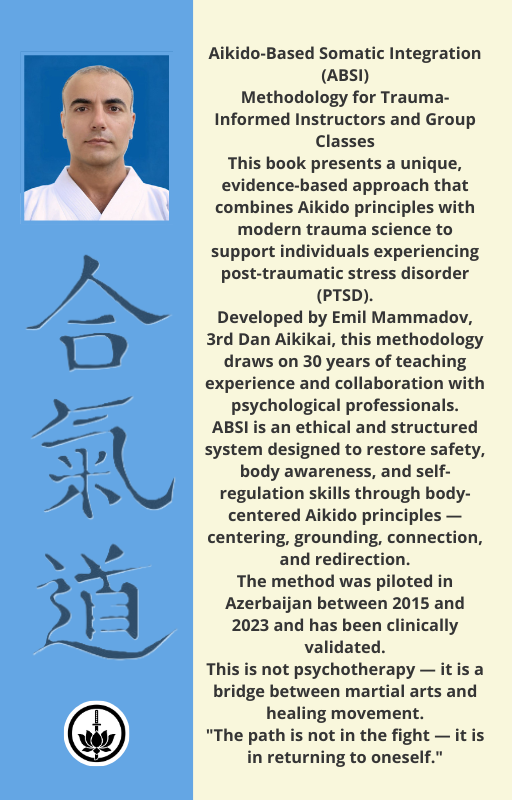Emil Mammadov shares views on aikido growth in country [INTERVIEW]
![Emil Mammadov shares views on aikido growth in country [INTERVIEW]](https://www.azernews.az/media/2025/11/03/azerbaijan_seminar_23_oct_2025_3.jpg)
A masterclass titled "Republican Seminar of Friendship of Aikido Clubs" has taken place in Baku, bringing together practitioners from various regions of the country to deepen their skills and knowledge of Aikido.
The event, which was both lively and inspiring, provided participants with a unique opportunity to share experiences, learn advanced techniques, and strengthen the Aikido community.
The seminar was an important step in promoting the development of Aikido across Azerbaijan, with the goal of fostering unity and mutual growth within the community.
In his interview with AZERNEWS, Emil Mammadov, Vice-President of the Public Association "Aikido Aikikai Clubs," shared his thoughts on the seminar, offering valuable insight into its success and impact.
Q: How do you evaluate the recently held seminar "Republican Seminar of Friendship of Aikido Clubs"?
A: The seminar was lively and rich in content. I saw how participants made efforts, learned, and supported each other, showing attention and interest in the practice. The skill level of the participants was especially noticeable, and this is important to me because I have experience attending many seminars both in Azerbaijan and abroad. I can honestly say that our aikidokas demonstrate a high level of preparation. Their past performances in Japan further confirm that we are moving in the right direction.
Aikido in Azerbaijan is developing thanks to the efforts of many clubs and instructors who invest their hearts and energy into it. Each of them contributes to the overall growth and popularization of Aikido in our country.
A significant role in this process is played by the Azerbaijan Aikikai Aikido Clubs Public Union (AAACPU). It is officially recognized by the Aikikai Hombu Dojo, the headquarters of Aikido in Tokyo, Japan, led by Doshu Mitsuteru Ueshiba, the grandson of Aikido's founder. The AAACPU is also registered and operates with recognition from the Ministry of Youth and Sports of Azerbaijan and the National Olympic Committee.
Our goal is to unite everyone who sincerely follows the path of Aikido. We are open to cooperation with any clubs and instructors who share the spirit of respect, mutual assistance, and the desire for development. I work in this organization as the Deputy Chairman, and my responsibilities include organizing seminars, masterclasses, training sessions, and exams for students.
In conclusion, I can say that the Aikido Friendship Seminar of Clubs became a significant event. It showed that Aikido in Azerbaijan is alive, developing, and bringing people together, regardless of the club, city, or level of experience.
I am sincerely grateful to everyone who participated, helped in organizing, and supported us. I would especially like to mention those who couldn’t attend but were with us in spirit, and we will surely meet next time.
For me, this seminar was not just a sports event or a training session. It reminded me that Aikido is a Path that connects people, helps to maintain calm, and shows respect for others. I am proud of our aikidokas, their attentiveness, and sincere desire to develop. I believe that such meetings help us continue this path together, with care and a shared pursuit of perfection.
Q: Which elements of the program generated the most interest among participants?
A: The seminar was very dynamic and inspiring. Many clubs from across the country participated. It was a pleasure to see that participants were not only eager to demonstrate technique but also truly eager to learn, share experiences, and understand the essence of Aikido. The atmosphere was sincere, productive, and warm – exactly the kind of environment a gathering of like-minded people should have.
The main idea of Aikido is Unity, and this seminar became a perfect example of how people from different clubs come together for a common goal.
We worked on basic elements, but I also decided to include more complex techniques to allow participants to expand their technical arsenal. Among the techniques we worked on were: Kaeshi-waza (counter-techniques, where defense seamlessly transitions into a counterattack), Henka-waza (variations of techniques requiring quick adaptation to the situation).
Participants gave their all. I saw their effort, attention, and motivation. Each one of them pushed themselves to the maximum, and it was evident in every movement. Personally, it was a joy to see how Aikido lives in the hearts of the participants.
Many participants lamented that the seminar ended too quickly, as when there is energy and interest, time flies by unnoticed. However, such meetings provide a powerful impetus for further work and growth.
Unfortunately, not all clubs were able to attend due to organizational reasons, but we received many positive feedbacks and wishes to repeat this format.
It is important to understand that this seminar was not just a technique breakdown. It was an opportunity to learn how to build a holistic training session that attends to both the body and the spirit. I made sure to give attention to everyone, from the youngest students to adults, so that all participants left with new experiences and inspiration.
The next day, I conducted a masterclass for instructors, where we focused on: Ukemi (falls and safety), working with a partner, exercises with weapons (tanto and bokken).
Special attention was given to breathing, safety, proper body positioning, and the transfer of positive energy between partners, as these elements form a high level of training culture and create the authentic atmosphere of Aikido.
Q: What role did weapon training (with the practice tanto) play in the seminar?
A: At the seminar, we introduced weapon training as part of the program to demonstrate how elements of technique are interconnected and help participants better feel their partner and the movement. In the masterclass for instructors, we extensively practiced exercises with jo, tanto, and bokken.
Working with safe wooden weapons helps participants better understand the lines of movement, control, and balance. Even a simple movement with a tanto immediately reveals areas that need work and helps develop accuracy and coordination.
Historically, Aikido developed alongside the practice of weaponry. In the past, carrying real weapons was prohibited, but the traditions were passed down and preserved, reaching us in their current form, albeit with variations emphasized by different schools. Overall, these practices were not for combat, but to enhance technique, sensitivity, and attentiveness to the partner. Today, weapon exercises help correct mistakes more quickly, form good habits, and make training more holistic.
For participants in the masterclass, this was an important experience: they once again saw how safe work with weapons enhances basic Aikido elements, helps them pay more attention to details, and makes the training richer and more beneficial.
Q: Can you tell us about the presentation of the book "Aikido: The Path to Inner Strength"?
A: At the seminar, I introduced my book to the participants for the first time. The goal of the book is to make Aikido understandable and accessible to everyone, even those who have not yet practiced this art. It doesn’t focus on techniques, but instead gathers the principles, essence, and philosophy of Aikido, which can be applied in everyday life.
The book shows how to deal with difficult moments, manage emotions, maintain calm and harmony in relationships, and make decisions with respect for others. It teaches the Aikido principle: "Do not resist, but guide!" Special attention is given to people with special needs, including those experiencing post-traumatic stress and other challenges, showing how Aikido techniques help them find inner strength.
For me, it's important that the book creates a bridge between the tradition of Aikido and the life of each person. It helps readers understand that developing inner strength is possible every day, with anyone, no matter who you are or where you are.
Q: Was there interest in the new ABSI methodology for working with people with post-traumatic stress?
A: In the masterclass for instructors, I talked in detail about my ABSI (Aikido-Based Somatic Integration) methodology, which we are constantly improving. Together with the instructors with whom we’ve previously conducted such sessions, we demonstrated how the methodology helps safely regain control over the body and reactions after stressful situations.
Participants showed genuine interest, discussing its practical application, asking questions, and sharing their experiences.
ABSI relies on natural body stabilization mechanisms and helps gradually restore confidence and inner balance. We saw that it really improves people’s condition, making them feel stronger, calmer, and safer in everyday life.
We plan to repeat the masterclasses and continue developing the program so that it becomes accessible to those who need it. It’s important to understand that ABSI is not a treatment nor just a technique. It’s a tool for caring for the person, showing how, through the principles of Aikido, attentiveness to the body, and proper interaction with others, we can create a sense of safety, support, and help people adapt after stressful situations. I continue working in this direction and am preparing a new methodology for mentors who wish to improve their teaching skills, which will be released soon.
Q: What are your plans for future seminars and the development of Aikido in Azerbaijan?
A: Aikido in our country is developing year by year, and we are seeing clear progress as interest grows. The level of practitioners is increasing, and this is encouraging: people are genuinely passionate, working on themselves, and developing not only their bodies but also their character. This result is possible thanks to the support of state institutions, the Ministry of Youth and Sports, the National Olympic Committee, the Japanese Embassy, and the attention from the Hombu Dojo in Japan, which oversees the preservation of traditions and quality of training.
Aikido differs from competitive sports like judo or karate. There are no tournament pressures, victories, or defeats in the traditional sense. There are no age or physical limitations. Aikido is open to everyone. The main focus is on mutual development, harmony, learning, and understanding the principles of the art.
That's why seminars, masterclasses, demonstrations, and festivals are particularly important in Aikido. They are not just training sessions, but an opportunity to exchange experiences, showcase skills, inspire students, and strengthen the community.
We plan to continue our work, making it beneficial for people and society: regular educational masterclasses for instructors to share experiences and raise their skills; programs for young people, helping children and teenagers develop focus, confidence, and physical fitness; active cooperation between clubs for mutual growth and strengthening the community; developing areas of Aikido that help people cope with stress and improve their psycho-emotional well-being.
The main goal is to create a strong, culturally mature, and open community that values each person.
We want Aikido to bring real benefits: strengthening health, boosting confidence, improving interaction skills, and promoting a harmonious life.
Every training session, seminar, masterclass, or demonstration is a step toward a larger goal, ensuring that Aikido in Azerbaijan not only exists but develops, inspires, and provides people with the tools for a better life.
Here we are to serve you with news right now. It does not cost much, but worth your attention.
Choose to support open, independent, quality journalism and subscribe on a monthly basis.
By subscribing to our online newspaper, you can have full digital access to all news, analysis, and much more.
You can also follow AzerNEWS on Twitter @AzerNewsAz or Facebook @AzerNewsNewspaper
Thank you!


